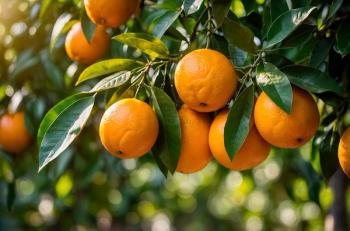
Bar Breakthrough
Thanks to a wave of media publicity, resveratrol has become a star in the supplement aisle. It can be found in capsules and pills, but until recently, it had not made a lot of headway in functional foods.
Originally Published
Thanks to a wave of media publicity, resveratrol has become a star in the supplement aisle. It can be found in capsules and pills, but until recently, it had not made a lot of headway in functional foods.
Late last year, ResVez Inc., a company based in Rancho Santa Fe, CA, launched its debut product, the WineTime Bar. The company touts the nutrition bar as the first bar to contain resveratrol. The bar also includes dark chocolate, dates, almonds, and seven superfruits: cranberry, noni, pomegranate, goji berry, acai, mangosteen, and blueberry.
WineTime's resveratrol comes from two sources. One is DSM Nutritional Products' (Parsippany, NJ) resVida, a 99%-pure trans-resveratrol. ResVez president and CEO Malcolm Nicholl says that the company's decision to use resVida stemmed from the extensive safety substantiation and scientific support behind the ingredient. (In fact, WineTime's packaging boasts resVida's branded logo.)
To honor the bar's wine concept, ResVez also wanted to include resveratrol that came from actual grapes. (DSM's resVida is nature-identical resveratrol.) Thus, the company decided to also include a resveratrol extract from Cyvex Nutrition (Irvine, CA) that is sourced from French red grapes. (Most other resveratrol extracts are derived from Japanese knotweed.)
"The French red grape extract, combined with the highly pure resVida resveratrol, gives customers the best of both worlds in terms of resveratrol source," says Nicholl.
Nicholl declines to specify exactly what percentage of resVida and grape extract each bar contains. Also, aside from saying that each WineTime bar contains as much resveratrol as 50 glasses of red wine, ResVez doesn't make any health claims about the level of resveratrol in its products, nor about resveratrol's purported health benefits such as heart health and antiaging.
"We decided that we didn't want to make any outrageous claims on the packaging," says Nicholl. Instead, he says that the company lets customers bring their own opinions about resveratrol to the product-opinions they may have formed based on publicity surrounding the ingredient.
This may be a wise decision, especially because for the most part, the science proving resveratrol supplement effects on human health has been absent. That is slowly changing, however. In December, DSM presented the results of its first human study on resVida that positively indicated that resVida may promote cardiovascular health by improving blood vessel function.
"The safety of resVida trans-resveratrol has been proven in multiple studies. These new study results are so exciting because they are the first data that show resVida's efficacy in humans," says one of the study's scientists, Narelle Berry, PhD, Nutritional Physiology Research Centre, School of Health Sciences, University of South Australia. She adds that resVida is the first pure trans-resveratrol dietary ingredient to demonstrate potential cardiovascular health benefits in humans.
The double-blind, randomized, crossover intervention study, conducted on 19 overweight or obese untreated hypertensive men and postmenopausal women, looked at the effect of trans-resveratrol on blood plasma levels and the ability of the main artery in the upper arm to expand as blood passes through-a process also known as flow-mediated dilation, or FMD. FMD is considered an indicator of blood vessel function and cardiovascular?health. Compared with placebo, resVida was readily absorbed in the blood and significantly improved blood vessel function.
More human clinical studies like DSM's may help to put more credibility behind resveratrol's hype. "There are additional human studies in progress, and I imagine we will be seeing reports in journals very soon," says Dr. Lori Lathrop Stern, senior nutrition scientist for DSM. She adds that as DSM continues its human clinical studies on resVida, it will also continue evaluating what an ideal dose of resveratrol supplementation might be.
In the meantime, DSM's study gives a boost to a company such as ResVez. Nicholl says that his company has received good product feedback from a number of different retail channels. He says that he can see the WineTime Bar being sold everywhere from gourmet groceries to wineries.
And what type of wine might WineTime pair best with? "Red," says Nicholl, with a laugh.
Newsletter
From ingredient science to consumer trends, get the intel you need to stay competitive in the nutrition space—subscribe now to Nutritional Outlook.





